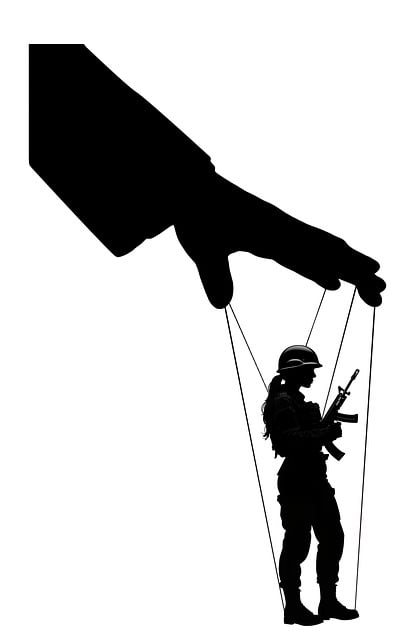Contempt of court, a legal offense involving non-compliance or hindering justice, carries severe consequences. Clients have rights and duties, crucial for effective navigation. Strategic preparation, representation, and understanding legal principles are key to defense. Establishing strong evidence is vital for a fair outcome. Legal counsel is essential to protect interests and navigate complexities.
Protecting client interests in contempt cases is paramount to ensuring justice. This article delves into the intricate dynamics surrounding contempt of court, exploring its definition and far-reaching impact on legal proceedings. We examine client rights and obligations, providing strategic insights for safeguarding interests during hearings. Legal professionals play a crucial role, and we analyze their responsibilities. Understanding evidence requirements and potential consequences equips clients with knowledge to navigate these complex matters.
- Understanding Contempt of Court: Definition & Impact
- Client Rights and Obligations in Legal Proceedings
- Strategies for Protecting Client Interests During Hearings
- The Role of Legal Professionals in Contempt Cases
- Evidence and Proof Requirements for Contempt Charges
- Potential Consequences and Defense Options for Clients
Understanding Contempt of Court: Definition & Impact

Contempt of court is a legal term that refers to the willful failure or refusal to comply with a court order or to obstruct the administration of justice. It can range from missing court hearings to deliberately providing false information or failing to turn over requested evidence. The impact of contempt can be severe, potentially resulting in fines, imprisonment, or both. These penalties are not punitive but rather aimed at encouraging compliance and maintaining the integrity of the legal process.
Understanding the nature and consequences of contempt is crucial for clients and their representatives. In cases where a client’s interests are at stake, awareness of potential contempt issues can help guide strategic decisions. By recognizing the definition and impact, individuals can navigate legal proceedings more effectively, ensuring they meet their obligations while protecting their rights and interests.
Client Rights and Obligations in Legal Proceedings

In legal proceedings involving contempt of court, it’s crucial to understand that clients have specific rights and obligations. One of the primary rights is the entitlement to a fair trial, which includes being informed of the charges, presenting evidence, and cross-examining witnesses. This ensures that the client can defend themselves effectively against allegations of contempt.
Additionally, clients are obligated to cooperate with the legal process by providing relevant information and documents when requested. They must attend hearings and follow court orders to ensure a smooth resolution. Understanding these rights and obligations is vital for clients to navigate the complexities of contempt cases and protect their interests throughout the legal proceedings.
Strategies for Protecting Client Interests During Hearings

Protecting client interests in contempt cases requires a strategic approach during hearings. One key strategy is thorough preparation, which includes gathering all relevant evidence and legal documents well in advance. This ensures that the lawyer can present a strong case, addressing any alleged contumacy effectively. Additionally, maintaining open communication with the client is vital; keeping them informed about proceedings and seeking their input on crucial decisions helps align legal strategies with their interests.
Another effective tactic is active participation during hearings. Lawyers should articulate arguments clearly and persuasively, highlighting the client’s perspective while also adhering to procedural rules. Employing persuasive language and logical reasoning can sway the judge’s decision in favor of the client. Moreover, knowing when to request adjournments or continuances can provide additional preparation time, allowing for more robust representations that better safeguard client interests.
The Role of Legal Professionals in Contempt Cases

Legal professionals play a pivotal role in contempt of court cases, acting as guardians of justice and client interests. Their expertise is crucial for navigating the complex legal landscape surrounding contempt, ensuring clients understand their rights and obligations. Attorneys and advocates must adeptly interpret and communicate intricate legal principles related to contempt, providing strategic guidance tailored to each unique case.
In representing clients accused or involved in contempt proceedings, legal professionals employ various tactics. These include meticulous document review, identifying relevant precedents, and constructing robust defenses. They advocate for their clients’ rights, ensuring fair treatment within the judicial process. Moreover, these professionals offer invaluable support by educating clients about potential consequences and the importance of adhering to court orders, fostering a culture of respect for legal authority.
Evidence and Proof Requirements for Contempt Charges

In cases of alleged contempt of court, establishing evidence and proof is paramount to ensuring justice. The burden of proof lies with the accuser, who must provide clear and compelling evidence that the individual in question has indeed contemned the court’s authority. This typically involves showcasing specific actions or omissions that deliberately disregard a court order or warrant. Evidence can include written records, witness testimonies, and direct observation, all aimed at demonstrating an intentional violation of court procedures.
The strength of proof required is stringent, demanding that each element of contempt be established beyond a reasonable doubt. This high standard safeguards against false accusations and protects the rights of those facing charges. It’s crucial for both parties to present concrete facts and circumstances that lead to a clear conclusion, ensuring a fair assessment and a just outcome in the event of a contempt trial.
Potential Consequences and Defense Options for Clients

In contempt of court cases, clients face potential consequences that can significantly impact their rights and interests. These may include fines, imprisonment, or both, depending on the severity of the offense. For instance, failing to comply with a court order, such as not appearing for a scheduled hearing or refusing to provide requested documents, can lead to contempt charges. Once accused, clients must swiftly understand their defense options.
A robust legal defense strategy involves challenging the evidence presented by the accuser and disputing whether the actions constituted actual contempt. Clients may argue that they had a reasonable excuse for non-compliance or that their conduct was not willful. Exploring alternative resolutions, like mediation or modified court orders, can also be a viable defense option. Engaging experienced legal counsel is crucial to navigate these complexities and protect one’s interests effectively.
